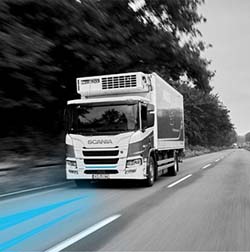
Europe's Electric Truck Transition at Risk of Stalling, Warns Scania CEO
Posted: 31-Jul-2025 |
Christian Levin, CEO of Scania and Traton Group, has issued a stark warning that Europe's leading truck manufacturers are in danger of failing to meet the ambitious 2030 CO2 reduction targets.
The primary culprits, according to Levin, are not technological shortcomings but significant failures in infrastructure and prohibitive economic conditions that are hindering the widespread adoption of electric trucks.
Levin's cautionary statement was made as the Volkswagen-owned Swedish truck maker announced its second-quarter results for 2025, which saw a 10% decrease in revenue to AUD $7.95 billion.Despite this, Levin emphasised that the industry is prepared for the electric shift.
"Frankly, the problem isn’t technology: electric trucks and buses are ready and in production, and European commercial vehicle manufacturers can deliver on orders now," he stated.However, the current environment is not conducive to this transition, with heavy battery-electric truck adoption languishing at a mere 1.5% across Europe.
The transition to electric heavy-duty transport faces two major hurdles: a severe lack of adequate infrastructure and unfavorable economic policies.**Infrastructure Deficit:**
According to Levin, the charging infrastructure for trucks is critically underdeveloped. Across the entire European Union, there are fewer than 1,000 chargers suitable for trucks.Furthermore, the essential megawatt charging technology remains largely unavailable, and lead times for grid connections are described as "unworkable."This scarcity of infrastructure creates significant operational challenges for transport companies considering a switch to electric fleets.Scania has attempted to address part of this issue from a technology standpoint by introducing its Megawatt Charging System in June, which it claims can charge a truck from 20% to 80% in less than 30 minutes, tackling the "downtime anxiety" among hauliers.
The second major obstacle is that the economic landscape is "skewed against BEVs" (Battery Electric Vehicles).In many EU member states, electricity is taxed more heavily than diesel fuel, directly undermining the financial case for going electric.Additionally, the high upfront investment costs for electric trucks, coupled with uncertainty surrounding their Total Cost of Ownership (TCO), remain a significant barrier for haulage companies. A Call for Urgent Political Action
Levin concluded that to accelerate the adoption of BEVs at the necessary pace, a concerted political effort is required. "To scale up our BEV offering at the pace we need to see, we urgently need political alignment on infrastructure, energy pricing and regulation,” he urged.Without a supportive framework from policymakers that addresses these systemic issues, the industry's technological readiness will be insufficient to achieve the crucial 2030 climate goals.The success of Europe's green transition in the transport sector now hinges on governments creating a viable ecosystem for electrification.



 + EQUIPMENT GUIDE - FREE
+ EQUIPMENT GUIDE - FREE
